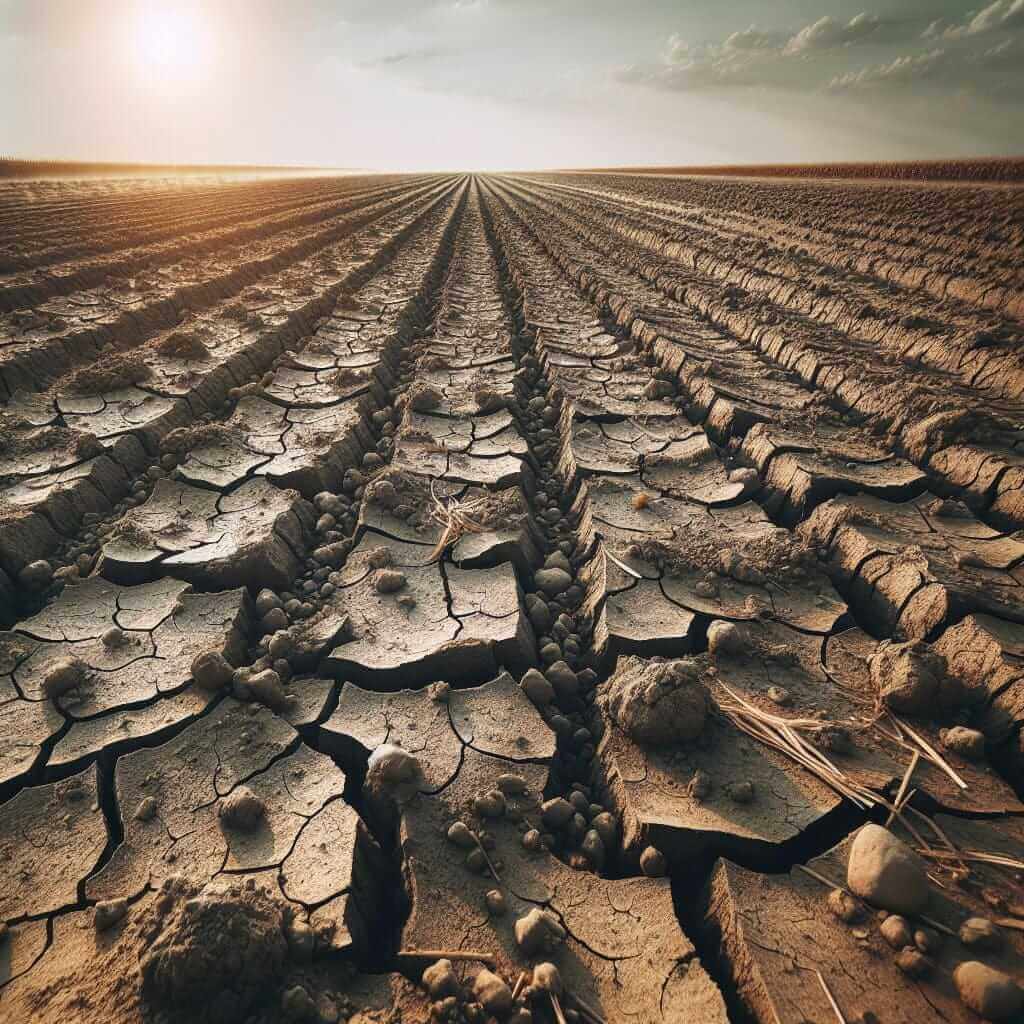Climate change is a pressing global issue with far-reaching consequences, and its effects on agricultural yields are of particular concern. This article delves into the impact of climate change on food production and provides a comprehensive guide to crafting a stellar IELTS Writing Task 2 essay on this topic.
Nội dung bài viết
Understanding the Topic: Climate Change and Agriculture
The phrase “The effects of climate change on agricultural yields” appears frequently in IELTS Writing Task 2, often under the broader themes of environment, agriculture, and global challenges. This topic requires you to demonstrate an understanding of:
- Climate Change: The long-term shift in global temperatures and weather patterns primarily caused by the increase of greenhouse gases in the Earth’s atmosphere.
- Agricultural Yields: The amount of crops or livestock products produced per unit of land area.
- The Interconnection: How the changing climate directly and indirectly influences agricultural productivity worldwide.
This topic has appeared in various forms in past IELTS exams, reflecting its significance in current global discussions.
Sample IELTS Writing Task 2 Question:
[quote]
Climate change is having a significant impact on agricultural practices around the world. Some people believe that we need to invest in adapting to these changes, while others argue that we should focus on reducing greenhouse gas emissions to mitigate the problem.
Discuss both these views and give your own opinion.
[/quote]
Analysis of the Question:
This question presents a classic “Discuss both views and give your opinion” structure. You are expected to:
- Introduce the topic: Briefly explain the impact of climate change on agriculture.
- Present the first view: Discuss the arguments for investing in adapting to climate change in agriculture (e.g., developing drought-resistant crops, improving irrigation).
- Present the second view: Discuss the arguments for focusing on reducing greenhouse gas emissions (e.g., transitioning to renewable energy, promoting sustainable agriculture).
- State your opinion: Clearly express your viewpoint on whether adaptation or mitigation should be prioritized, providing reasons for your stance.
- Conclude: Summarize the main points and offer a final thought.
Model Essay:
Climate change poses a significant threat to global food security, as it disrupts established weather patterns and agricultural practices. While some advocate for adapting to these changes, others believe that prioritizing the reduction of greenhouse gas emissions is crucial. This essay will delve into both perspectives before presenting my own viewpoint.
Proponents of adaptation argue that it is essential for ensuring food security in the face of unavoidable climate change impacts. They emphasize the development and implementation of climate-resilient agricultural practices. This includes cultivating drought-resistant and heat-tolerant crop varieties, improving irrigation systems to optimize water use, and implementing early warning systems for extreme weather events. By adapting to changing conditions, farmers can potentially mitigate losses and maintain productivity.
Conversely, those advocating for a focus on reducing greenhouse gas emissions contend that adaptation alone is insufficient. They argue that addressing the root cause of climate change is paramount. Transitioning to renewable energy sources, promoting sustainable agricultural practices like no-till farming and crop rotation, and reducing deforestation to enhance carbon sequestration are crucial steps in this direction. Failure to drastically reduce emissions will exacerbate climate change, rendering adaptation efforts increasingly ineffective in the long run.
In my opinion, while adaptation is necessary to manage the immediate impacts of climate change, it should be viewed as a complementary strategy to emissions reduction, not a replacement for it. Investing in renewable energy, sustainable agriculture, and afforestation efforts is crucial for mitigating the long-term consequences of climate change on agriculture and ensuring global food security for future generations.
In conclusion, addressing the impact of climate change on agriculture requires a two-pronged approach. While adapting to the changing climate is essential for the present, prioritizing the reduction of greenhouse gas emissions is crucial for safeguarding the future of agriculture and global food security.
Word Count: 288 words
Useful Vocabulary:
- Climate Change Mitigation: (noun) – Efforts to reduce or prevent greenhouse gas emissions. (/ˈklaɪmət ˌtʃeɪndʒ ˌmɪtɪˈɡeɪʃən/)
- Climate Change Adaptation: (noun) – Adjustments to natural or human systems in response to actual or expected climatic changes. (/ˈklaɪmət ˌtʃeɪndʒ ˌædæpˈteɪʃən/)
- Food Security: (noun) – The state of having reliable access to a sufficient quantity of affordable, nutritious food. (/ˈfuːd sɪˈkjʊərəti/)
- Greenhouse Gas Emissions: (noun) – Gases released into the atmosphere, primarily through human activities, that trap heat and contribute to global warming. (/ˈɡriːnhaʊs ɡæs iˈmɪʃənz/)
- Drought-Resistant Crops: (noun) – Crop varieties that are bred or genetically modified to withstand periods of low water availability. (/draʊt rɪˈzɪstənt krɑːps/)
- Sustainable Agriculture: (noun) – Farming practices that aim to meet present food and textile needs without compromising the ability of future generations to meet their own needs. (/səˈsteɪnəbl ˈæɡrɪkʌltʃər/)

Writing Tips:
- Provide Specific Examples: When discussing adaptation or mitigation strategies, provide concrete examples to illustrate your points. For instance, instead of simply mentioning “drought-resistant crops,” give an example like “Scientists are developing drought-resistant varieties of maize to help farmers in arid regions.”
- Use Linking Words Effectively: Ensure a smooth flow of ideas by using appropriate linking words and phrases to connect sentences and paragraphs. Examples include: “However,” “Furthermore,” “In addition,” “On the other hand,” “In conclusion.”
- Maintain a Formal Tone: IELTS writing requires a formal and academic tone. Avoid using contractions (e.g., “don’t,” “can’t”), slang, or overly emotional language.
- Proofread Carefully: Before submitting your essay, take the time to proofread for any grammatical errors, spelling mistakes, or awkward phrasing.
Additional Related Topics:
- The role of technology in mitigating the impact of climate change on agriculture.
- The economic consequences of declining agricultural yields due to climate change.
- The impact of climate change on global food prices and food security.
By understanding the key concepts, using relevant vocabulary, and following these tips, you can confidently tackle IELTS Writing Task 2 questions related to the impact of climate change on agricultural yields.